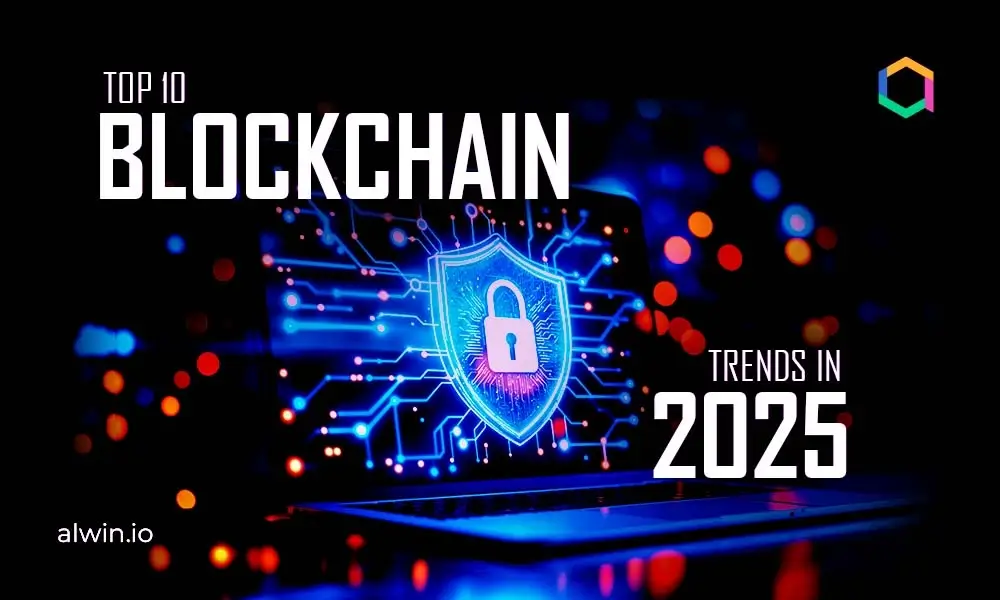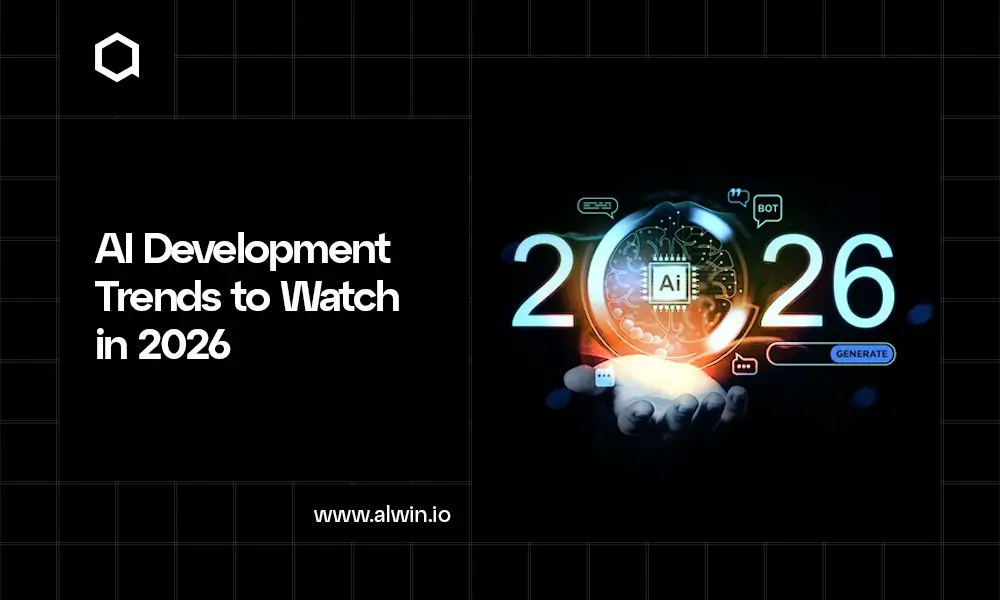Blockchain technology has been around for over a decade now, but the pace at which it's evolving in 2025 is nothing short of remarkable. From reshaping financial services to transforming supply chains, blockchain is at the core of some of the most innovative trends that are defining our future. If you're curious about where this transformative technology is heading, you're in the right place.
Get to know the latest blockchain trends in 2025, its impact on industries and economies, and the exciting business opportunities that await.
Overview of Blockchain Technology
Blockchain is a distributed, decentralized ledger that records transactions across multiple computers, providing transparency, security, and immutability. Originally designed for cryptocurrencies like Bitcoin, blockchain’s potential goes far beyond digital currency. Blockchain Technology is quickly becoming the backbone for a range of industries, from finance and healthcare to supply chain management and digital identities. Without any intermediaries, it allows for peer-to-peer transactions, and blockchain strengthens systems by making them more efficient, secure, and cost-effective.
But what exactly does 2025 have in store for blockchain? Let’s take a look at the trends and innovations that are set to disrupt industries worldwide.
Present Blockchain Market Statistics: A Snapshot of the Blockchain Transformation
Before we explore the exciting trends of 2025, it’s essential to understand where blockchain stands today:
The blockchain technology market is on rapid growth! In 2023, it was valued at around USD 17.6 billion, but by 2024, it’s expected to jump to approximately USD 26.9 billion. And that’s just the beginning by 2034, we could see the market explode, reaching anywhere from USD 825.9 billion to a whopping USD 2.45 trillion. This surge is being driven by widespread adoption across industries, major venture capital investments, and government support.
Leading the charge is North America, especially the U.S., whose market is expected to rise at an astounding compound annual growth rate (CAGR) of 53.2% from its 2023 valuation of USD 5.68 billion to roughly USD 619.3 billion by 2034. As blockchain continues to evolve, it’s set to transform industries, offering exciting new opportunities for businesses and entrepreneurs to innovate and streamline operations.
Top 10 Blockchain Trends in 2025
1. Blockchain-Powered Digital Identity
By 2025, DeFi Development Company will play a key role in decentralizing digital identity solutions, giving individuals full control over their personal data without relying on banks or governments. Expect to see blockchain integrated into social media platforms, financial institutions, and healthcare systems to provide secure, tamper-proof identity verification.
2. NFTs with Practical Use Cases
Forget just buying digital art!
NFTs are set to become much more practical. In 2025, NFTs will be used as access keys for events, membership cards for exclusive communities, and even certificates of ownership for physical assets like real estate. Expect more brands and industries to adopt NFTs for authentication, loyalty programs, and reward systems.
3. DeFi 2.0: A Smarter Financial Ecosystem
Traditional finance has already been reshaped by DeFi, but by 2025, DeFi 2.0 will have further overturned it. Anticipate increasingly intuitive systems with sophisticated yield farming, insurance, and lending/borrowing options that don't require as much technical know-how. DeFi 2.0 pushes the limits of what we previously believed was feasible without a middleman and promises to be scalable, secure, and more accessible to the general public.
4. Blockchain for Supply Chain Transparency
Blockchain will be a solution to supply chain transparency, which is more crucial than ever. Expect more businesses to trace products from raw materials to delivery using blockchain by 2025. This will guarantee ethical sourcing, improve product traceability, and aid in the eradication of fraud. Customers will have real-time access to product scans for sustainability and authenticity.
5. Interoperability Across Blockchains
In 2025, dApp Development will see significant growth as interoperable blockchain networks enable cross-chain communication. This advancement will improve the flexibility of decentralized apps (dApps), allowing them to interact uninterruptedly across different platforms. The rise of interoperability will break down barriers, enabling greater collaboration across industries and improving the overall functionality of dApps.
6. AI and Blockchain Synergy
In 2025, AI-powered blockchain solutions will become more common. The Integration of Blockchain into Your Existing Business will allow smarter, faster decision-making, improved automation, and even predictive analytics. For example, blockchain’s transparency and AI’s analytical power will make supply chain optimization, personalized healthcare, and fraud detection more effective than ever before.
7. Blockchain for Healthcare
With blockchain technology, healthcare is about to undergo a significant transformation. By 2025, blockchain will make it possible to safely exchange medical records, improve the transparency of clinical trials, and ensure pharmaceutical traceability. To improve results and lower errors, patients will have total ownership over their data, and medical professionals will have access to a safe, unchangeable record of their medical history.
8. Blockchain for Intellectual Property (IP) Protection
Blockchain will be a crucial instrument for intellectual property (IP) protection by 2025. Blockchain technology will be used by creators to track usage, verify ownership, and enforce copyrights without the need for middlemen. This will help sectors where intellectual property theft is a major issue, such as music, cinema, technology, and even fashion. The unchangeable record of blockchain technology will guarantee that authors keep control over their creations.
9. Governments Embrace Blockchain for Public Services
Governments around the world have begun looking into blockchain for a variety of purposes, including social assistance distribution, public record management, and electronic voting. To provide more secure, and effective public services, we anticipate that more governments will implement blockchain by 2025. In addition to guaranteeing openness in governmental transactions, blockchain will be essential in reducing fraud and corruption.
10. The Rise of Decentralized Autonomous Organizations (DAOs)
In 2025, DAOs will become more common as companies and organizations move toward decentralized decision-making. These blockchain-powered organizations allow members to vote on decisions, propose ideas, and govern without a centralized hierarchy. DAOs will disrupt industries by giving more people a voice in governance, whether in tech companies, social movements, or even non-profits.
Impact of Blockchain on Industries and Economy
Blockchain’s potential to transform industries is vast, and its influence will only continue to grow over the coming years. By 2025, many sectors will see significant benefits from this technology. Let’s explore some key industries that stand to gain the most:
Finance: Blockchain will improve security, efficiency, and trust in financial transactions by reducing the need for intermediaries and lowering transaction costs. This technology will also improve cross-border payments and create more transparent financial systems.
Healthcare: By offering tamper-proof methods for storing and exchanging patient data among healthcare providers, blockchain will protect medical records, lower fraud, and enhance overall patient care.
Supply Chain: With blockchain, supply chains will benefit from end-to-end visibility, ensuring products are ethically sourced, tracked in real-time, and delivered efficiently. This will reduce fraud and counterfeiting while increasing clarity.
Entertainment: In the entertainment industry, blockchain will facilitate media distribution, simplify royalty payments, and protect intellectual property rights by ensuring digital content ownership is securely managed.
Real Estate: Blockchain has the potential to completely transform the real estate industry by facilitating quicker, more transparent, and less fraudulent real estate transactions. Smart contracts will save time and money by automating agreements and minimizing paperwork.
Business and Entrepreneurial Opportunities in Emerging Blockchain Trends
The rise of blockchain technology is creating a wave of entrepreneurial opportunities that go far beyond corporate giants and government initiatives. As the blockchain ecosystem continues to expand, innovators and startups have a unique chance to carve out their own niches. One area to watch is Blockchain Consulting, where businesses will increasingly seek expert guidance on implementation and integration.
With the profitable popularity of NFTs, there’s also a growing demand for NFT Platforms, giving entrepreneurs the chance to build new marketplaces and creative spaces for artists and collectors. Another exciting frontier is DeFi (Decentralized Finance), where entrepreneurs can develop apps that empower users to manage digital assets, invest, and borrow without relying on traditional banks.
Additionally, Blockchain Development is another key area where developers skilled in smart contracts and decentralized app (dApp) creation will be in high demand. With the blockchain industry evolving rapidly, the opportunities for businesses and entrepreneurs are endless now is the perfect time to enter this transformative space and utilize emerging trends for growth and innovation.
Conclusion
As we approach 2025, a Blockchain Development Company will be crucial in driving industry transformation, offering solutions that improve transparency, security, and efficiency across sectors. From digital identities to DeFi, WeAlwin Technologies will enable businesses and individuals to tap into the vast potential of blockchain technology. Despite challenges like flexibility and regulation, the opportunities for innovation are immense. For those looking to capitalize on the decentralized future, partnering with us will be key to navigating and succeeding in this rapidly evolving landscape.



